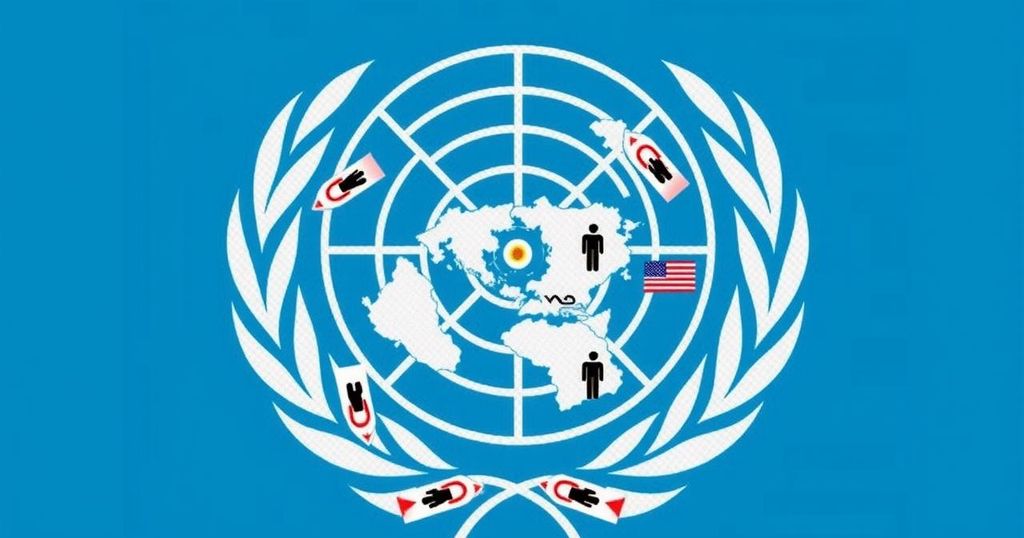Argentina’s recent United Nations vote against a resolution condemning gender violence has sparked intense political backlash, marking a significant shift under President Javier Milei’s far-right leadership. This move aligns with a broader realignment of Argentina’s foreign relations, raising concerns about the future of social policies and international partnerships.
In a shocking diplomatic turn, Argentina became the only nation to vote against a United Nations resolution condemning violence against women and girls. This decision, made under President Javier Milei—characterized as Argentina’s most right-wing leader in recent decades—ignited fierce criticism from various political factions within the country. Milei’s administration is noted for its tendency to align closely with U.S. policies and adopt controversial stances, particularly regarding cultural issues that diverge from Argentina’s historically progressive norms. This vote was not an isolated incident. Just days prior, Milei had recalled Argentine negotiators from a U.N. climate summit, raising concerns about potential withdrawal from the Paris climate agreement. Observers argue that these actions represent a stark deviation from Argentina’s traditional foreign policy, which has emphasized integration with the Global South. Political analysts underline the significance of this shift, emphasizing its alignment with a more unilateral and right-leaning global stance. Milei’s administration has faced backlash not only for its international positions but also for its domestic policies, which have eliminated ministries focused on women’s rights and environmental issues. Critics have characterized this as a cultural battle, suggesting that such moves could alienate Argentina from its traditional allies and the broader international community. Furthermore, potential attempts to leverage relationships with figures like former President Donald Trump are being scrutinized as attempts to secure foreign investments necessary for Argentina’s economic recovery. The current political climate reflects extreme polarization and anxiety, with many fearing that longstanding social advancements, such as the legalization of abortion, may be at risk under Milei’s governance. As Milei continues to dismantle established diplomatic norms and embrace a combative rhetoric against international institutions, the ramifications for Argentina’s social policies and international standing remain to be seen. As the country navigates these drastic shifts, voices from both the left and moderate political sectors have condemned the current administration’s direction, urging a reconsideration of the trajectory currently taken. Overall, the move to vote ‘no’ on a resolution aimed at combating gender-based violence signals a broader ideological shift for Argentina under President Milei, one that has raised alarms regarding human rights and democratic values. This situation serves as a critical junction for Argentina; the government must balance its economic recovery aims with the preservation of its social and diplomatic integrity.
The recent vote against a UN resolution by Argentina marks a significant departure from its historically progressive approach to gender equality and international cooperation. Under President Javier Milei’s administration, known for its far-right policies, Argentina has begun to embrace controversial cultural battles, reflecting a broader trend towards isolationism and alignment with like-minded nations. This shift raises concerns over the potential erosion of social gains previously achieved in the country, particularly regarding women’s rights and climate policies.
In summary, Argentina’s recent ‘no’ vote at the United Nations highlights a notable shift in the country’s foreign policy under President Javier Milei. This action, coupled with other controversial decisions, suggests a new era of governance that prioritizes alignment with far-right ideologies and U.S. influence, potentially jeopardizing Argentina’s historical commitments to social justice and international collaboration. As the political landscape evolves, the implications of these changes will undoubtedly reverberate through both domestic and international arenas.
Original Source: abcnews.go.com







